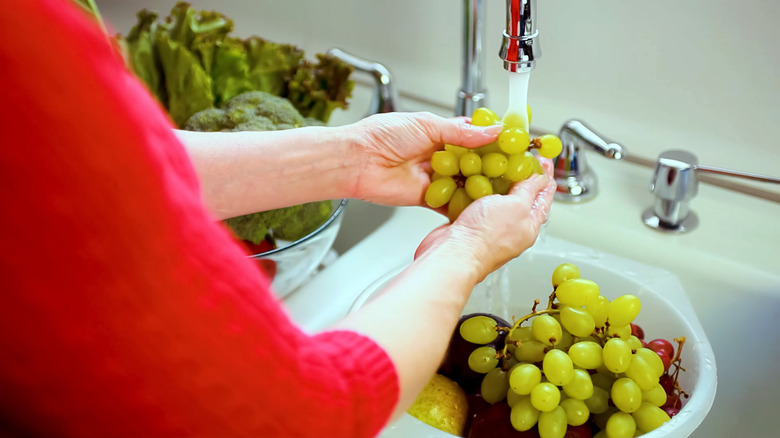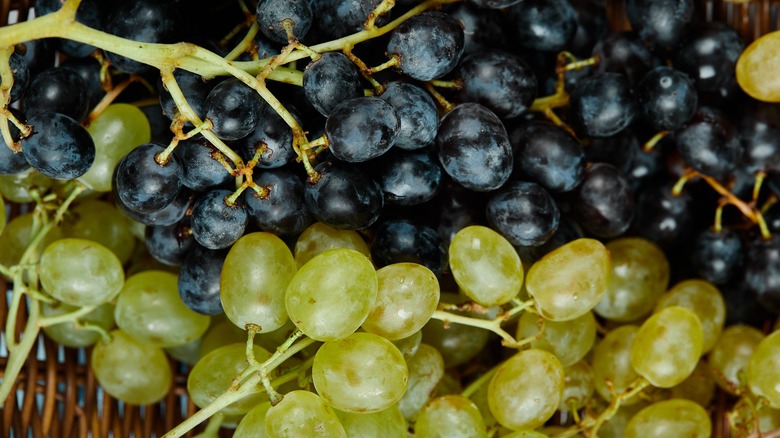The Reason You Should Never Wash Grapes In Advance
To avoid getting salmonella, E. coli, and listeria, the Centers for Disease Control and Prevention (CDC) recommends you wash your fruit. As the CDC explains, "The safest produce to eat is cooked; the next safest is washed." Whether or not you should wash your fruit isn't really up for debate, but when and how you do so may be.
For instance, you can run your berries under sink water or soak them in vinegar to kill mold spores. And although some don't believe you need to wash fruit with a peel, like oranges or bananas, the CDC advises doing so in case of bacteria from the peel seep into the flesh.
And when it comes to grapes, you should definitely wash them since you'll most likely pop them in your mouth whole. This is not only for safety reasons but because grapes typically are covered in white wax that has an unpleasant taste. The question then becomes, when? It may be the popular belief that you need to wash and prep all your fruit after a Sunday farmer's market run — but in reality, there's a good reason to wait before cleaning your grapes.
Washing grapes too early leads to spoilage
When washing grapes, it's safest to wait until right before you're ready to eat them. This doesn't mean you should leave them out while you wait — in fact, you'll want to put them in the fridge as soon as you get home from the store, where they'll last up to two weeks. Then when you're ready, give them a good rinse. To remove the "bloom" or the wax, toss your grapes with a few teaspoons of salt and baking soda and rinse thoroughly.
If you wash your fruit and store it until it's ready to eat, you risk it rotting more quickly. Even if you pat your grapes dry or let them air-dry, you'll unlikely remove 100% of the moisture. And prolonged wetness leads to mold, bacteria growth, and decay — aka clean grapes can go bad while they sit in the fridge.
And what about the white waxy stuff? While we may not want to eat it, it actually helps keep grapes from going bad. Bloom is a yeast that coats the fruit, keeping harmful bacteria away — so when we wash it off too early, we're leaving our grapes susceptible to premature rotting. To play it safe and make your grapes last long, wait to wash them until you're ready to eat.

